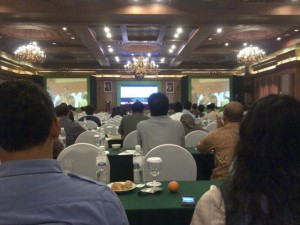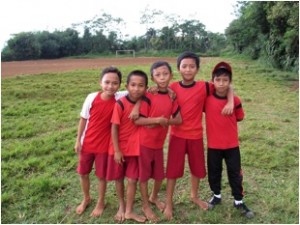
Pollution is finally getting official attention in Indonesia
July, 2013
You know that a government is getting serious about something when there are official workshops and conferences.
We are glad to report that last month, the Indonesian Ministry of Environment hosted a meeting and panel discussion about hazardous waste which attracted over 500 participants, including representatives from the chemical and waste industries, and other businesses and government departments that deal with the production, collection, transportation, and recycling of toxic waste.
While we have been working in Indonesia for some years now, this was the first workshop that the Ministry has conducted with a focus on the cleanup of contaminated sites. This means that the issue of toxic pollution is now getting official recognition, and that is key to getting things done. All this follows Indonesia’s membership in the Global Alliance on Health and Pollution (GAHP), for which Pure Earth serves as secretariat.
We attended the workshop, which took place on the island of Batam, to deliver a presentation on toxic hotspots, public health, strategies and technologies. The goal was to let all Indonesian stakeholders know about the resources available through the GAHP.
We also wanted to showcase some of the continuing work that we have been doing in Indonesia to combat mercury contamination from artisanal gold mining and lead contamination from used lead-acid (car) battery recycling.

Playing soccer barefoot is dangerous for these kids in Cinangka. The field is contaminated with toxic lead.
In particular, we announced the upcoming launch of our pilot cleanup in Cinangka, where we are remediating a lead-contaminated soccer field so that children in the village can play without being poisoned. The project is being undertaken with GAHP’s help in collaboration with the Indonesian Ministry of Environment, the government of Bogor Regency, and the NGO Komite Penghapusan Bensin Bertimbel.
Masnellyarti Hilman, the Deputy Minister for Hazardous Substances, Hazardous Wastes and Solid Waste Management acknowledged that the project in Cinangka would encourage better management of toxic and hazardous waste across Indonesia. She further stated that they would follow up on the 150 toxic hotspots that GAHP has identified in Indonesia through Pure Earth’s Toxic Sites Identification Program.



